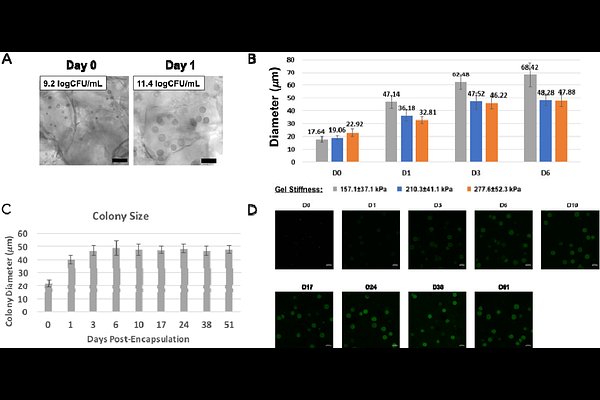Hyperporous encapsulation of microbes for whole cell biocatalysis and biomanufacturing

Hyperporous encapsulation of microbes for whole cell biocatalysis and biomanufacturing
Zhang, J.; Chang, K.; Tay, J.; Tiong, E.; Heng, E.; Seah, T.; Lim, Y. W.; Peh, G.; Lim, Y. H.; Wong, F. T.; Beh, C. W.
AbstractCompared to traditional synthetic chemical processes, biocatalysts offer a more sustainable and eco-friendly approach to producing complex molecules. In particular, whole-cell biocatalysts boast numerous advantages, including scalable, self-containing co-factor recycling systems, the use of cost-effective raw materials, and reduced purification costs. However, challenges arise when working with microbial consortia for biotransformation cascades. Our encapsulation strategy addresses these challenges by controlling microbial cell populations through physical constraints, offering a promising approach in biomanufacturing. In this work, we describe the immobilization of cells in a hyper-porous hydrogel block, which provides ample nutrient access while simplifying media changes. We encapsulated E. coli cells in a hydrogel matrix with suitable mechanical properties, effectively limiting their proliferation while sustaining recombinant GFP production. Furthermore, we successfully maintained different microbial strains spatially in a single porous hydrogel block for at least 10 days, demonstrating the potential of this method for achieving stable co-culture. Finally, we demonstrated the application of immobilized E. coli for co-culture fermentation. The immobilization of E. coli heterologously expressing RadH halogenase significantly improved the efficiency of genistein halogenation in a co-culture with genistein-producing Streptomyces compared to its non-immobilized counterpart.